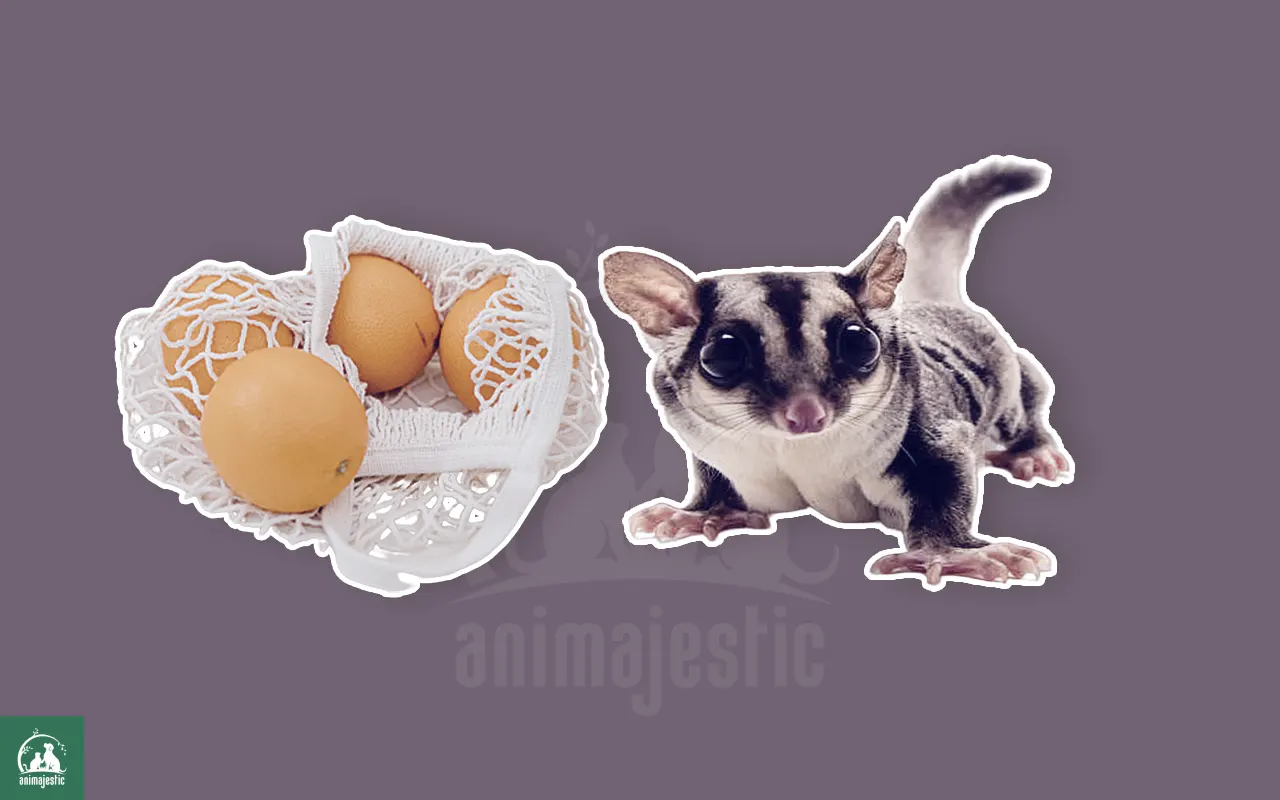In the diverse world of pet nutrition, the topic of whether sugar gliders eat oranges is often brought up among pet owners. The intriguing consideration stems from the natural inclination of sugar gliders towards sweet foods, and the juicy appeal oranges hold.
Since they have become popular pets in recent years due to their unique appearance, sociable nature, and all-around cuteness. As responsible pet owners, examining the balance of health benefits and potential concerns of this fruit in a sugar glider’s diet is vital to ensure their well-being.
Join us as we discover if oranges make a nutritious addition or pose possible health risks for these adorable marsupials.
Understanding Sugar Glider Diets
Sugar gliders, as their name suggests, have a natural inclination for sweet foods in the wild. They primarily consume nectar, fruit, and the occasional insect. As omnivorous creatures, it’s crucial to provide variety in their diet.
A sugar glider’s diet must include:
- Protein: Insects, such as crickets or mealworms, provide an essential source of protein for sugar gliders.
- Fruits: Apples, grapes, melon, and berries are just a few examples of fruits typically fed to sugar gliders.
- Vegetables: Leafy greens, carrots, and squash can offer the necessary vitamins and minerals for optimal health.
- Calcium: A calcium supplement is often recommended as sugar gliders are prone to metabolic bone disease due to calcium deficiencies.
While it’s important to provide sugar gliders with a diverse diet, not all fruits are appropriate for consumption. Moderation is crucial and understanding which fruits are safe to include in their diet can help prevent any complications.
Can Sugar Gliders Eat Oranges?
The answer to this question is between a YES and a NO. So read on.
Citrus fruits, such as oranges, are highly debated among sugar glider enthusiasts and owners alike.
Some believe that, as with many other fruits, oranges can be a nutritious treat for sugar gliders when fed in moderation.
Benefits of Oranges for Sugar Gliders
Oranges offer numerous potential benefits for your sugar glider’s diet:
- High Vitamin C content: Vital for maintaining a strong immune system and aiding in iron absorption.
- Dietary Fiber: Promotes healthy digestion and may help keep sugar gliders full and satisfied.
- Antioxidants: Help protect the body against cell damage caused by free radicals.
Concerns Regarding Oranges
While the benefits of oranges seem promising, there are some essential concerns we must address before including them in a sugar glider’s diet:
- High in Sugar: Oranges have a higher sugar content than other fruits. Consuming excessive amounts of sugar can lead to obesity and other health issues in sugar gliders.
- Acidity: Citrus fruits are naturally acidic, which can potentially harm a sugar glider’s digestive system and lead to complications such as diarrhea or an upset stomach.
- Pesticides: If not properly washed, oranges may contain harmful pesticides that could negatively impact a sugar glider’s health.
Expert Opinions on Oranges for Sugar Gliders
Given the concerns listed above, many experts and nutritionists specializing in sugar gliders recommend avoiding citrus fruits, including oranges.
The potential risks associated with acidity and high sugar content may outweigh any potential benefits.
Alternative Fruits for Sugar Gliders
While oranges might not be the best option for sugar gliders, several other fruits can be safely incorporated into their diets. Some excellent alternatives include:
- Apples: Apples are a low-calorie, fiber-rich fruit option. Make sure to remove seeds, as they can be toxic to sugar gliders.
- Pears: Much like apples, pears offer nutritional benefits and are generally well-tolerated by sugar gliders.
- Grapes: Grapes are often well-liked by sugar gliders and can supply valuable nutrients. Make sure to cut grapes into smaller pieces to prevent any choking hazards.
- Berries: Blueberries, strawberries, and raspberries are all excellent fruit options that pack a punch in antioxidant content while being low in sugar.
Always remember to serve fruits in moderation in your sugar glider’s diet to avoid potential health complications.
Tips for Feeding Sugar Gliders Oranges
Regardless of which fruits you choose to incorporate into your sugar glider’s diet, keep these essential feeding tips in mind:
- Wash fruits thoroughly: Washing fruits will help remove any potential pesticides or contaminants on the surface.
- Serve fresh fruit: Feeding sugar gliders ripe, fresh fruit ensures they receive the maximum nutritional benefits.
- Remove inedible parts: Remove any seeds, stalks, or pits from the fruit, as these can pose a choking risk or be toxic to sugar gliders.
- Moderation is key: Overfeeding fruits can lead to obesity and other health issues for sugar gliders. Remember to diversify the diet and portion the food accordingly.
In Conclusion
Can sugar gliders eat oranges? While small amounts may not be immediately harmful, expert opinions recommend looking into alternative fruits for a well-rounded, nutritious diet.
Keeping your sugar glider’s health in mind and providing balanced meals will ensure a happy, healthy companion for years to come.
